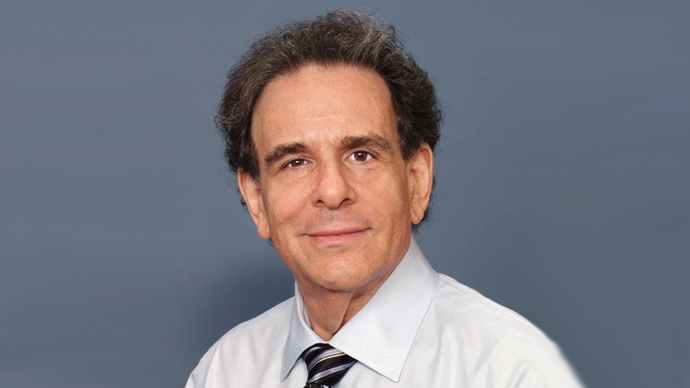A new webinar examines employee wellness and mental health in professional services and the impact of wellness on firm performance during COVID-19.
Employee well-being is at the center of many company responses to COVID-19, according to a recent effort by Gallup to compile responses from more than 100 members of its CHRO Roundtable.
Notably, all CHRO Roundtable member companies offered “some form of well-being assistance, such as webinars, well-being check-ins, apps, expansion of in-house well-being programs — even mental health champions who are trained to provide advice and guidance,” the report noted.
Employee wellness and mental health are also a growing topic of conversation in professional services, and insights from new research and an increase in understanding of the impact of wellness on firm performance during COVID-19 was the topic of Shadows on the Shore: Managing Employee Mental Health& Morale, a webinar hosted by the Thomson Reuters Institute.
Findings from new research on well-being
Two of the largest factors cited as contributing to a more positive well-being status were i) understanding how a partners’ role fits into the overall purpose of the law firm; and ii) having the opportunity to participate in new changes that impact the firm, according to survey of 700-plus partners across more than 160 law firms from around the world that was conducted by Acritas, now part of Thomson Reuters.

Interestingly, these two factors align with to two larger trends around positive employee engagement, which focus on each employee’s understanding of how their role contributes to the mission of the overall organization and the opportunity to give feedback on a project or new direction of the team, group, business, or company.
Factors of well-being for professional services
According to panelist Dr. Larry Richard, CEO of LawyerBrain, the basic needs of lawyers — and humans for that matter — are predictability, control over their well-being, and connection. He explained how each need factors into the well-being of lawyers:
- Predictability —Dr. Richard, a panelist on the recent webinar, described how the public health crisis has unraveled every dimension of predictability. The typical lawyer brain, while focused on a task, is also monitoring the external environment for risks or uncertainty, Dr. Richard said, adding that the lawyer brain is continually searching for sudden changes in the environment and risks that are outside of its control that potentially could be harmful. The current crisis came about suddenly, forcing most people into a remote-work environments unexpectedly and making many aspects of daily life uncontrollable. This caused harm to people’s health and economic security, he explained, which in turn, increased both unpredictability and stress.
- Control — Lawyers also desire more control in comparison to other professionals, Dr. Richard said. The increased perceptions of control lead to people being sick less often and enjoying longer life spans as well, he noted. The swift change in daily life caused by COVID-19 has left most people feeling a lack of control over what happens to them.
- Connection — As humans we are naturally social beings. Therefore, the social distancing required by COVID-19 has increased the need to be socially connected in new ways that in many cases are foreign to people. The isolation that arises with physical distancing from family and friends has forced executives and leaders to flex their style to better provide a sense of stability to their teams and employees.

Actions of leaders during times of crisis
Both Dr. Richard and another panelist, organizational Development expert Dr. Paul Camper of Camper Consulting, recommended the following ways for leaders to maintain productive, healthy employees.
- First, Dr. Richard advised each leader to take care of themselves, highlighting the point that staff and teams will avoid taking the guidance of the leader if that leader is not practicing good health themselves.
- Camper suggested that leaders be explicit about what he calls the “crisis bargain,” which outlines what the firm requires of its team members and what employees should expect from leaders. More specifically, the firms needs employees to remain productive during the “new normal” of the crisis; and employees need a safe space in which to be able to focus on their work. Leaders have to provide this safe space by meeting employees’ four basic crisis-related needs: safety, stability, information, and support, Dr. Camper explained.
- Next, convene employee meetings “live” remotely with regularly scheduled check-ins and additional townhalls to increase communication and decrease uncertainty. The consistent nature of these gatherings provides stability.
- Emphasize what has not changed and what remains consistent during scheduled virtual sessions and use videoconferencing to engender feelings of connectedness.
- Finally, express gratitude and relay something positive at the beginning of meetings to remind others of parts of their own lives they can appreciate — and always try to provide support, Dr. Camper and Dr. Richard advocated.
Overall, lawyers have been satisfied with effective home-working and their ability to collaborate with others, according to a pulse survey conducted recently by Acritas of its community of stand-out lawyers. In addition, the lawyers surveyed said they feel supported and have appreciated strong and compassionate leadership with regular communications.
The hope for a win-win outcome
So, is there a win-win result from the public health crisis? Panelist Lauren Baptiste, founder and executive wellness coach at Acheloa Wellness, stated that the basic needs of employees during any work situation are to feel empowered, and in order for this to occur, employees need to feel protected and safe within a space in which they can thrive.
Moreover, organizations need to make employee well-being part of their definition of success, and as part of that, include that measurement within the performance framework that organizations use as part of their long-term strategy, Baptiste explained.
While COVID-19 has spotlighted (again) the alignment between employee well-being and organizational performance both financially and in achieving goals, Baptiste noted that this has been a requirement for overall organizational culture, health, and sustainability going back for more than a decade.
The win-win comes from truly centering on human capital and normalizing humanity in the workplace for the long-term, she adds.






